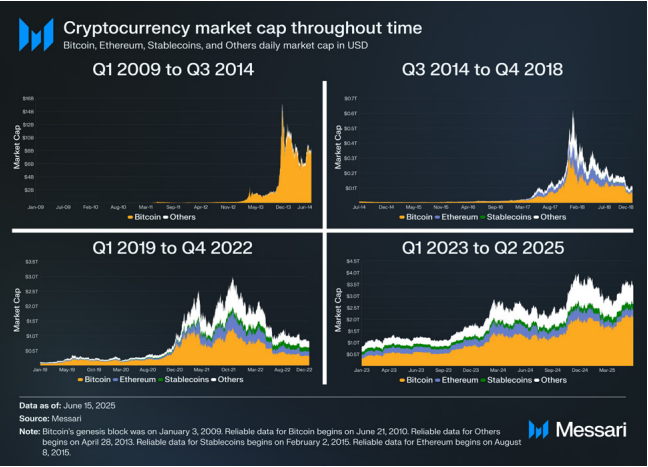The US government is taking an offensive stance with a comprehensive crypto policy plan. The White House has released a new roadmap that aims not only to provide greater clarity and security in digital finance, but also to solidify the United States' leadership role in the global crypto space.
The new “National Crypto Policy Roadmap” from the White House outlines clear regulations for stablecoins, DeFi, and crypto exchanges. The goal is to promote innovation while minimizing risks to consumers and the financial system. According to the 160-page document, the measures will be implemented gradually through 2026.
Clear guidelines for crypto innovation
The new crypto roadmap, coordinated by the National Economic Council and the Financial Stability Oversight Group, includes strict review standards for stablecoins, a legal framework for decentralized protocols (DeFi), and more intensive oversight of crypto exchanges. According to the official statement by the US government, the roadmap aims to “establish a safe and fair digital financial standard from the outset.” The US Securities and Exchange Commission (SEC) and the Commodity Futures Trading Commission (CFTC) were also involved in order to avoid overlapping regulatory structures. The objective is to provide clear and consistent conditions for both startups and institutional investors.
According to the White House, the digital asset industry plays a crucial role in innovation and economic development in the United States as well as in the nation's international leadership role. It is therefore the policy of the current administration to support the responsible handling and use of digital assets, blockchain technology and related technologies in all areas of the economy. The document quotes the following points from the executive order that President Trump signed shortly after taking office:
- To ensure the protection and promotion of the ability of individual citizens and private actors to access and use open public blockchain networks for lawful purposes - without persecution. This includes the ability to develop and distribute software, participate in mining and validation, conduct transactions with others without unlawful censorship, and maintain self-custody of digital assets;
- To promote and protect the sovereignty of the US dollar, including through measures that support the development and growth of lawful and legitimate dollar-backed stablecoins;
- To protect and promote fair and open access to banking services for all law-abiding individuals and private businesses alike;
- To create regulatory clarity and certainty through technology-neutral regulations, frameworks that account for new technologies, transparent decision-making processes, and clearly defined regulatory responsibilities – all of which are essential to support a dynamic and inclusive digital economy, as well as innovation in digital assets, permissionless blockchains, and distributed ledger technologies; and
- To take measures to protect Americans from the risks of Central Bank Digital Currencies (CBDCs), which threaten the stability of the financial system, individual privacy, and the sovereignty of the United States – including a ban on the establishment, issuance, circulation, and use of a CBDC within the jurisdiction of the United States.
US aims for global leadership in digital finance
With this roadmap, the US government is strategically positioning itself as a global leader in crypto regulation. The report highlights the potential of blockchain technologies to drive economic growth, financial inclusion, and the geopolitical competitiveness of the United States. It also emphasizes the importance of maintaining a leadership position vis-à-vis countries like China – particularly in regard to the development of central bank digital currencies and regulatory standards.
Together with recent developments such as approved Bitcoin ETFs and the growing institutional adoption of crypto, the roadmap signals a new phase of collaboration between the government and the crypto industry. Associations like the Blockchain Association and major market players such as Coinbase and Circle welcomed the move as a long-overdue clarification of regulatory frameworks.





